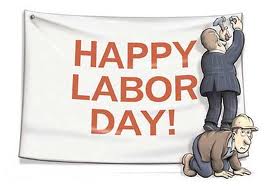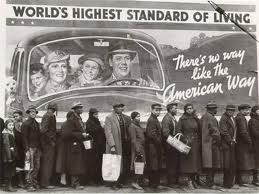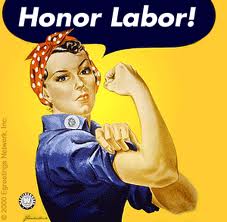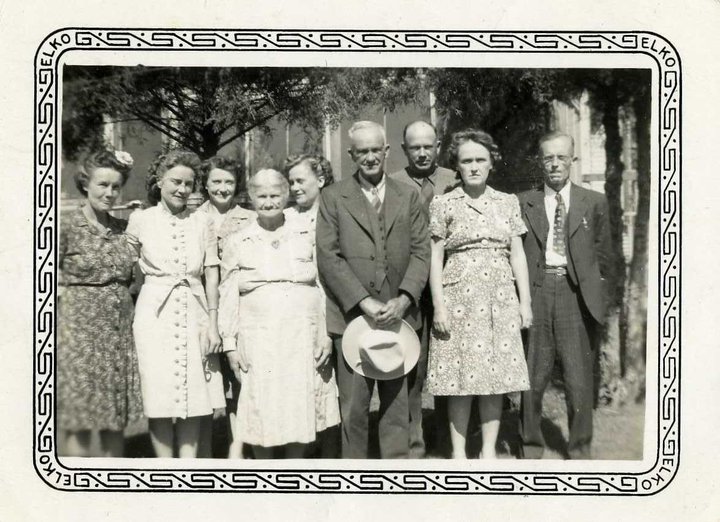 I love Labour Day. I love the history of it, the idea that we honour our working class roots. That we at least still pay lip service to those of us who work (hard) for a living.
I love Labour Day. I love the history of it, the idea that we honour our working class roots. That we at least still pay lip service to those of us who work (hard) for a living.
This is about Labour Day. Or Labor Day, as those of us w/out a British spelling background spell it :). It’s about what (and who) built this country: regular people. NOT incredibly wealthy people. NOT high rollers. But people fleeing persecution, people dreaming of bigger and better tomorrows. Workers and farmers and mothers and children and their back-breaking labour. Slaves, who received nothing in return for theirs. Immigrants, who were (and still are) willing to do anything for a chance at a better life.
When I think of American history, I don’t think first of the upper class — CEOs who make 7- and 8-figure annual salaries. I don’t think positively of most of them, in fact. I studied the Depression, the Robber Barons. I know what happened in the Deep South to those who built plantation empires for others on the scarred backs of their free labour.
I’m also the daughter of a man and woman, neither of whom graduated from high school. Although both later received GEDs, and attended college. My father even received an Associate’s degree when he was in his 60s. And I’m the granddaughter and great-niece of two women who raised their children while working as cleaning ladies at banks, where the upper middle class had offices.
Like my grandmother, I’ve cleaned houses. The advanced degrees I now have don’t erase my memories of what it’s like to be asked to eat in the garage, or wash a floor w/ a toothbrush. You do it because it pays the rent. And really? I never expected to have to do that kind of back-breaking work forever. Any more than I expected to be a carpenter’s helper forever, although I learned how to chalk a slab, how to lay a tie plate. But there are many many many Americans for whom any of those jobs is the best work they’ll ever get. These days, too often we look down on them. We seem to think blue collar work is somehow ‘less’ than those of us w/ white collar jobs, inherited wealth.
 Americans too often dismiss manual and physical work, especially if done by union labour. And yet unions are the reason my grandmother made even as little as she did (less than I did at the same time, as a receptionist). Unions are how she received the tiny pension that made her ‘retirement’ (in her 70s) possible. Unions work for public servants, as well (police and firefighters, for instance). Unions also put an end to the common US industry practice of child labour. And as the Department of Labor notes:
Americans too often dismiss manual and physical work, especially if done by union labour. And yet unions are the reason my grandmother made even as little as she did (less than I did at the same time, as a receptionist). Unions are how she received the tiny pension that made her ‘retirement’ (in her 70s) possible. Unions work for public servants, as well (police and firefighters, for instance). Unions also put an end to the common US industry practice of child labour. And as the Department of Labor notes:
The vital force of labor added materially to the highest standard of living and the greatest production the world has ever known and has brought us closer to the realization of our traditional ideals of economic and political democracy. It is appropriate, therefore, that the nation pay tribute on Labor Day to the creator of so much of the nation’s strength, freedom, and leadership — the American worker. (http://www.dol.gov/opa/aboutdol/laborday.htm)

So-called ‘below the neck’ work (traditionally blue collar) is both respectable and skilled, something we seem to be forgetting, even on this day that celebrates our hard work roots. Matthew Crawford, author of Shop Class as Soulcraft, and Mike Rose, author of The Mind at Work: Valuing the Intelligence of the American Worker, both make the argument that ‘skilled labour’ is exactly that: highly skilled. And requiring metacognition on a par with surgery or electrical engineering. It requires a great deal of higher order thinking skill — decision making, scaffolding, the juggling of complex and diverse variables. This probably won’t be welcomed in academic circles, where Vo-Tech often has all the cachet of house work (like I did… like my grandmother did…).
But today I’d like to celebrate the work that is invisible — the work my grandmother did. That my great-aunt did. The work their sisters and brothers and mother and father — my great-grandparents — did. The work that our mechanics and waitresses and carpenters and plumbers and the many Americans who learn trades do to make our daily lives richer and more comfortable. Thank you, Grandma. Thank you, Aunt Bonnie. Thank you for teaching me that what a person does honourably and with good intent is always respectable. On this day, I honour your legacies.

